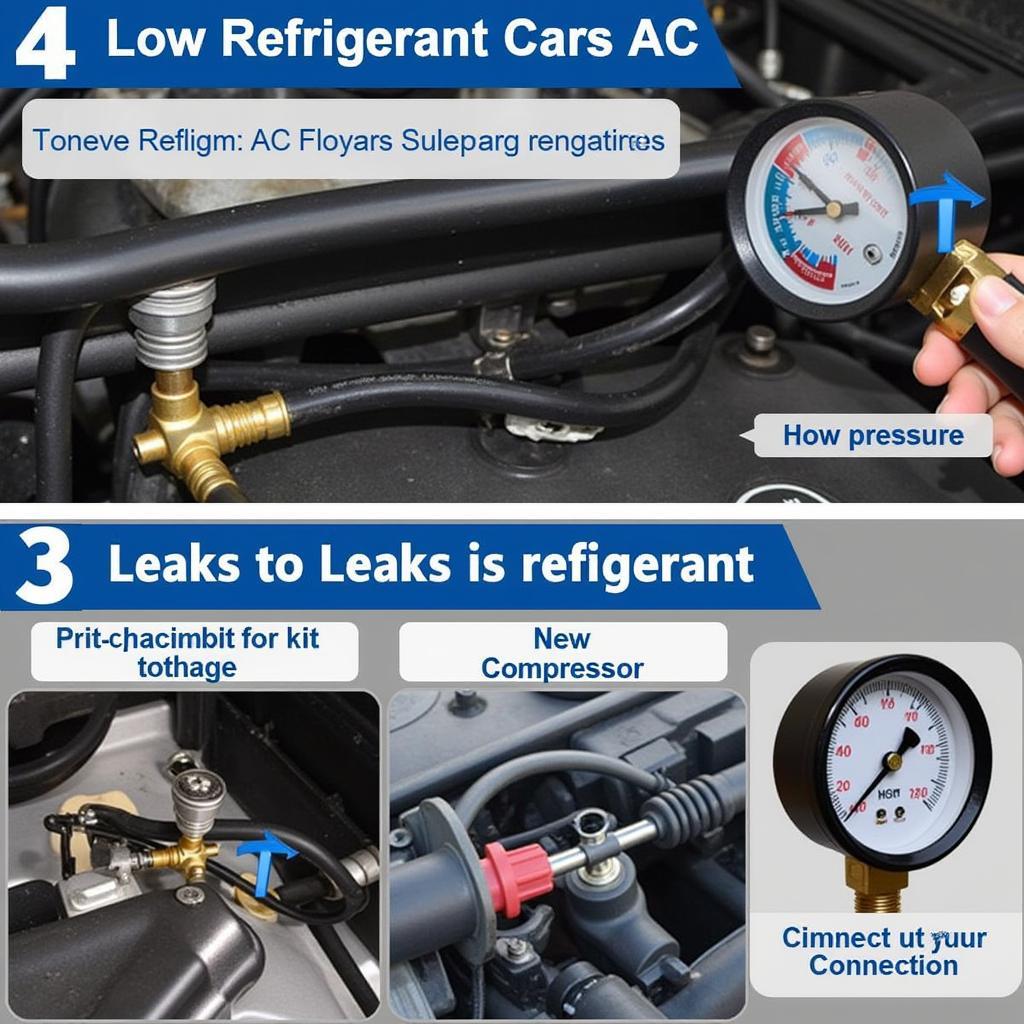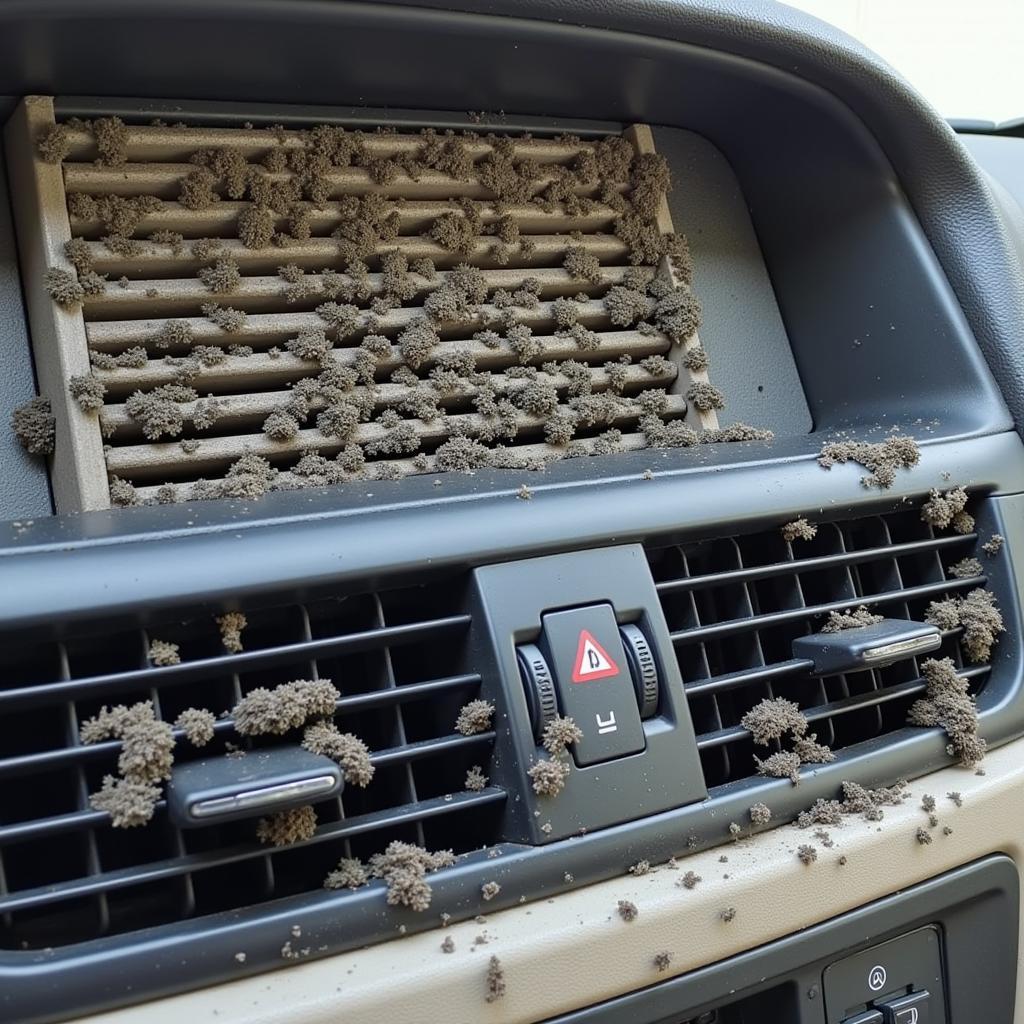Experiencing car aircon problems in the Philippines? With the tropical climate, a malfunctioning AC can make driving unbearable. This comprehensive guide will equip you with the knowledge to diagnose and potentially fix your car aircon issues, whether you’re a car owner, mechanic, or technician.
Understanding Common Car Aircon Problems in the Philippines
The Philippine heat and humidity can put a significant strain on your car’s air conditioning system. Several common car aircon problems arise in this climate, including weak airflow, warm air blowing, unusual noises, and unpleasant odors. Identifying the root cause is the first step towards a solution.
Weak Airflow: Causes and Solutions
Weak airflow often stems from clogged cabin air filters, a common issue due to dust and pollution. Another culprit could be a malfunctioning blower motor.
- Check the cabin air filter: Locate and inspect the filter. If it’s dirty, replace it. You might be surprised at the difference a clean filter makes.
- Inspect the blower motor: If a new filter doesn’t solve the problem, the blower motor might be failing. This often requires professional attention.
Warm Air Blowing: Diagnosing the Issue
Warm air blowing from your vents usually indicates a refrigerant leak. The intense heat in the Philippines can accelerate refrigerant evaporation. Other possible causes include a faulty compressor or expansion valve.
- Check for leaks: A professional can use specialized equipment to detect refrigerant leaks.
- Assess the compressor and expansion valve: These components are crucial for the cooling process and may require replacement if faulty.
 Low Refrigerant in Car AC System
Low Refrigerant in Car AC System
Unusual Noises: Identifying the Culprit
Unusual noises, such as clicking, hissing, or grinding, emanating from your AC system often point to mechanical problems.
- Compressor issues: A failing compressor can produce loud noises.
- Loose components: Loose belts or other components can also create unusual sounds.
- Debris in the system: Debris in the blower motor or other parts can cause rattling or clicking.
Unpleasant Odors: Eliminating the Source
Unpleasant odors coming from your AC vents often indicate mold or bacteria growth within the system, especially common in humid environments like the Philippines.
- Clean the evaporator coil: A professional cleaning can remove mold and bacteria buildup.
- Replace the cabin air filter: A dirty filter can harbor mold and contribute to unpleasant odors.
 Moldy Car AC Evaporator Coil
Moldy Car AC Evaporator Coil
Car Aircon Problem Philippines: Preventive Maintenance Tips
Preventing car aircon problems is often more cost-effective than repairs. Regular maintenance can extend the lifespan of your AC system.
- Regularly replace the cabin air filter: Aim to replace the filter every 12,000 to 15,000 kilometers or more frequently if you drive in dusty conditions.
- Schedule annual AC checkups: A professional can inspect the system for leaks, assess refrigerant levels, and identify potential issues.
- Run the AC periodically, even during the cooler months: This helps lubricate the system and prevent seals from drying out.
What are the common signs of a car AC compressor problem in the Philippines?
Common signs include loud noises, warm air blowing, and reduced cooling performance.
How often should I have my car’s AC system checked in the Philippines?
Ideally, have it checked annually or as recommended by your car’s manufacturer.
“Regular maintenance is key to preventing major car aircon problems, especially in a climate like the Philippines,” says Emmanuel Santos, a seasoned automotive technician in Manila. “A simple filter change can make a big difference.”
Car Aircon Problem Philippines: DIY vs. Professional Repair
While some minor issues can be addressed with DIY solutions, more complex problems require professional expertise. Attempting complex repairs without proper knowledge can worsen the problem.
“Don’t underestimate the complexity of a car’s AC system,” advises Maria Reyes, an automotive engineer based in Cebu. “If you’re unsure about something, it’s always best to consult a qualified professional.”
Conclusion: Keeping Your Car Cool in the Philippines
Addressing car aircon problems in the Philippines is crucial for comfortable driving. By understanding the common issues, practicing preventive maintenance, and knowing when to seek professional help, you can keep your car’s AC running smoothly. If you need assistance with your car aircon problem in the Philippines, contact AutoTipPro at +1 (641) 206-8880 or visit our office at 500 N St Mary’s St, San Antonio, TX 78205, United States.
FAQ
- Why is my car AC blowing hot air?
- How much does it cost to recharge car AC in the Philippines?
- How often should I change my car AC filter in the Philippines?
- What are the signs of a leaking car AC system?
- Can I fix my car AC myself?
- How do I clean my car AC vents?
- What is the average lifespan of a car AC compressor?







Leave a Reply